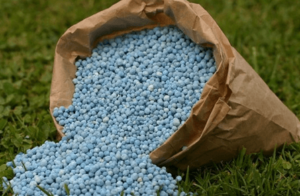Fertilizer subsidy programme needs reform – Researchers
 Researchers at a dissemination workshop about Ghana’s soil fertility management and impact of fertilizer subsidy programme have suggested a review of government’s subsidy scheme.
Researchers at a dissemination workshop about Ghana’s soil fertility management and impact of fertilizer subsidy programme have suggested a review of government’s subsidy scheme.
They said the scheme introduced by government some eight years ago was well-intended and meant to help increase agricultural output, however, administrative bottlenecks which were causing shortages and impeding early delivery of fertilizer to farmers ought to be addressed immediately.
“The impact of subsidy on the economy, I mean the overall economy is good, but it is not enough to give only fertilizer subsidy, other things like infrastructure and irrigation are important,” Dr Irene S. Egyir, the Technical Advisor on Agriculture and Agric business Unit of the Ministry Of Finance, said.
“They [farmers] want rain water and at the same time irrigation, there are environment issues to be addressed, farmers understand the soil, so the subsidy programme is just to push the farmer; the price is an incentive, if you have subsidies and yet the price is high, then it will not serve the purpose,” Dr Egyir said.
Speaking to 70 participants on the topic: “The impact of fertilizer subsidy programme”, she raised concerns over fertilizer smuggling and the rich large scale farmers dominating the purchase of the product at the expense of the poor.
Dr Egyir said government needed to pay attention to market infrastructure development since farmers were already overburdened – spending too much on labour, fuel and equipment while smuggling worsen their plight.
She also said her research findings revealed that the Ministry of Food and Agriculture staff deployed to help farmers, were ignorant largely due to lack of training and incentives to enable them deliver effectively.
She questioned the adequacy and monitoring procedures instituted to supervise the fertilizer subsidy idea and called for a holistic approach to overhaul the scheme and guide farmers to explore other opportunities and techniques.
Dr Kollavi Shashidhara, the International Food Policy Research Institute Country Programme Manager, presenting his findings on “Ghana’s soil fertility management” said subsidy was good but farmers’ knowledge and ability to test soil acidity and nutrients level were critical.
“The issues of testing are not done at the small scale level because of the cost component and the challenge of technical know-how,” he said, and called for private public participation in the agriculture sector to boost investment for growth and output.
The workshop was to disseminate the findings of two studies and the mission was to draw evidence-based recommendations to feed into the agriculture sector’s policy formulation and implementation.
Source: GNA
